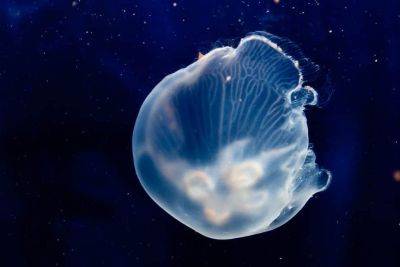Header image: Born in space: I’d rather not come down to Earth. geniusdevil
Science Ideas, Tips & Guides
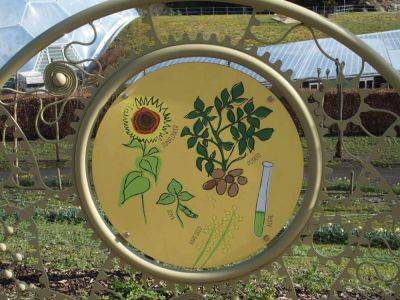
Growing Minds: The Crucial Role of Botanical Knowledge in Education
Botany should feature more heavily in the school curriculum, and be a greater focus of educational policy, a new study in the Journal of Biological Education says.
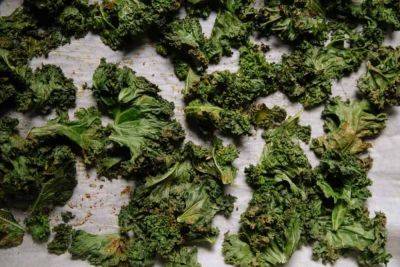
Celebrity greens kale and seaweed were long considered food of last resort
Lauren Alex O’ Hagan, Cardiff University
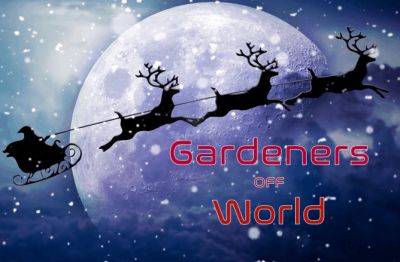
GoffW: 97530.64
This week, Gardeners Off World watched as the latest SpaceX launch (CRS-19) delivered more exciting experiments to the International Space Station (ISS).
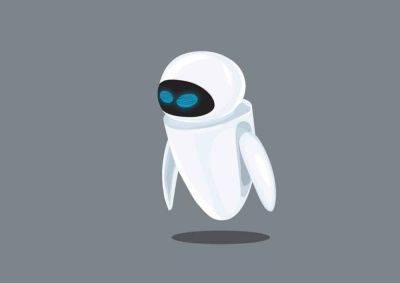
Dark Matter at Daresbury Laboratory
Remember the Dark Matter garden from RHS Chelsea 2015? When it was dismantled at the end of the show, it was put on a truck and taken to Daresbury Laboratory in Cheshire. In this video you can watch it being rebuilt and replanted
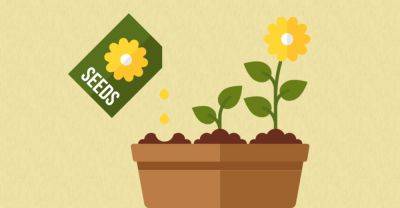
Seed Dispersal
There’s a lovely article on BBC Nature today about how ants sow the seeds of the Cape. Researchers have been investigating the Fynbos habitat of the Cape region of South Africa and the climatically similar south west of Western Australia. These biodiversity hotspots have a large proportion of plants that are myrmecochorous – their seeds are dispersed by ants.

Our microplastic mess
If your recycling bin is anything like mine, then it’s overflowing with plastic packaging. The rubbish bin is even worse – filled with plastic wrap and other bits and pieces that can’t currently be recycled and have to be sent off to landfill. We’re drowning in plastic, and although there are people trying to live a plastic-free life, it feels as though that could be a full time job. Plastic has become the material of choice since the 1950s, since it is cheap and lightweight and can be fashioned into all kinds of things. The problem is that most of the 8.3bn tonnes of plastic we’ve made still exist, either in landfills across the world, or the oceans. It’s going to last hundreds, if not thousands, of years, and is causing damage to our environmental life support system.
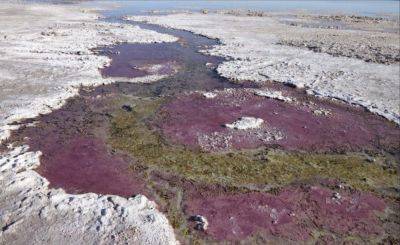
Ancient microbial life used arsenic to thrive in a world without oxygen
Header image: Purple microbial mats offer clues to how ancient life functioned. Pieter Visscher, CC BY-ND
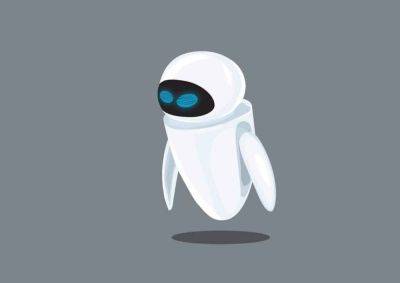
Showcasing science with plants: Dark Matter at Chelsea
An ethnobotany superhero by night, my mild-mannered daytime alter ego is a science writer for the Science and Technology Facilities Council (STFC), one of the UK’s research councils. It’s not often that those two worlds collide, although during the early summer the campus I work on is dotted with the blooms of hardy orchids.
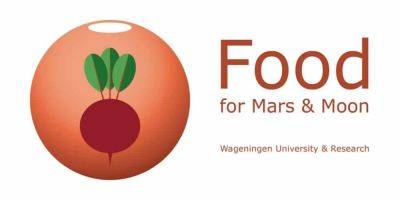
More Food for Mars and Moon
A little while ago, I told you about a preliminary experiment that Dr Wieger Wamelink and his team at the University of Wageningen conducted. It demonstrated that it is possible to grow plants in simulated Mars and Moon soils.

World War II bombing raids in London and Berlin struck the edge of space, our new study reveals
Patrick Major, University of Reading and Chris Scott, University of Reading
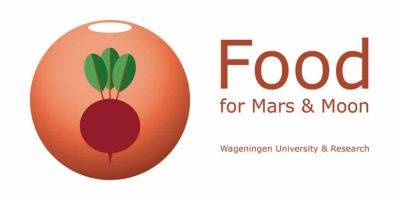
Can we grow food on the Moon or Mars?
Can we grow food on the Moon or Mars? That was the question that started Dr Wieger Wamelink, ecologist and exobiologist at the University of Wageningen in the Netherlands, on a research quest in 2013.
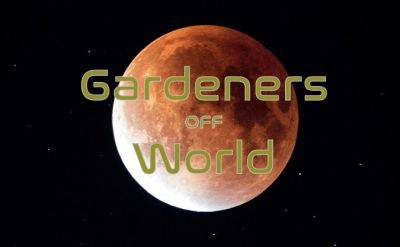
GoffW: 97703.00
Hello, and welcome to Gardeners Off World, your round-up of interplanetary news and views. NASA’s Christina Koch returned to Earth yesterday, after spending 328 days onboard the International Space Station (ISS) – the longest single spaceflight by a woman. Koch participated in three expeditions – 59, 60 and 61 – during her first spaceflight. ESA’s Luca Parmitano and Russian cosmonaut Alexander Skvortsov came home on the same flight.
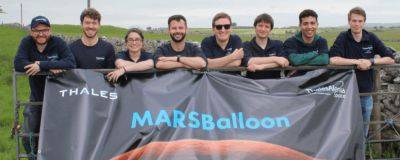
MARSBalloon 2021
Last week, Thales UK and Thales Alenia Space announced their MARSBalloon 2021 project. They plan to launch more than 150 experiment capsules on high altitude balloons 30km up into the Earth’s atmosphere in June 2021. At those altitudes, the gas pressure, temperature and radiation are very similar to those on the surface of Mars. Perhaps the most exciting aspect of this project is that UK students will fill those experiment capsules. School students and science clubs can carry out Mars-analogue science experiments, with no costs beyond materials and postage. The only catch? It has to fit into a plastic Kinder Egg™ capsule.
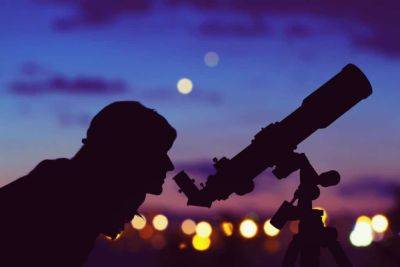
How to see stars and tackle light pollution in your own backyard
Daniel Brown, Nottingham Trent University
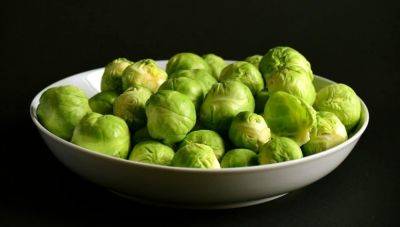
A (scientific) defence of the Brussels sprout
Trevor George, King’s College London
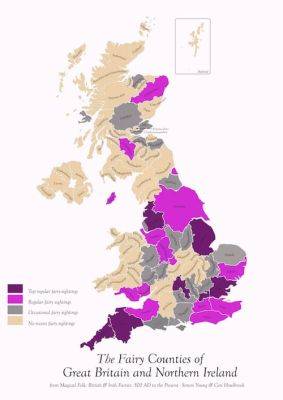
Are there fairies at the bottom of your garden?
2017 is the 100th anniversary of the start of the Cottingley fairies story, a hoax which entrances the UK to this day. Cousins Frances Griffiths and Elsie Wright faked photos of fairies at the bottom of the garden, intended to be a practical joke on their grown-ups. When Elsie’s mother showed the photos to the local Theosophical Society, she set in motion a chain of events that led Sir Arthur Conan Doyle to declare the photographs to be authentic. He wrote an article on fairy life for The Strand magazine in November 1920, and fairy fever gripped the nation. Conan Doyle later wrote a book on the subject, The Coming of the Fairies – The Cottingley Incident.
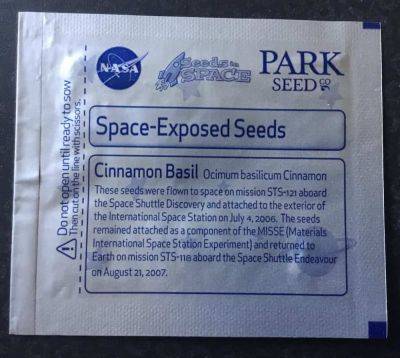
Space-flown basil and tomato seeds
Back in 2014, I bought some seeds that had been into space. They are cinnamon basil (Ocimum basilicum Cinnamon), still sealed into their space packet.
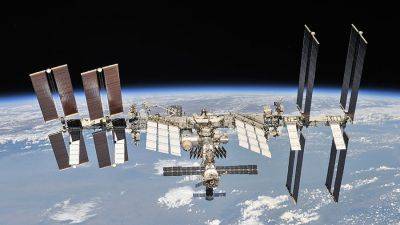
Have you spotted the Veggie Memorial Plaque?
I was scrolling through Twitter recently when I spotted something in a picture of the Veggie growth chamber on the ISS that I hadn’t noticed before – there’s a triangular plaque at the back.
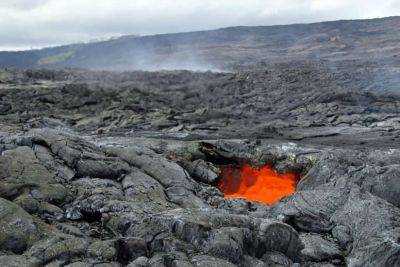
Rehearsing for the Mars landings in Hawaii and Idaho
Allyson Brady, McMaster University
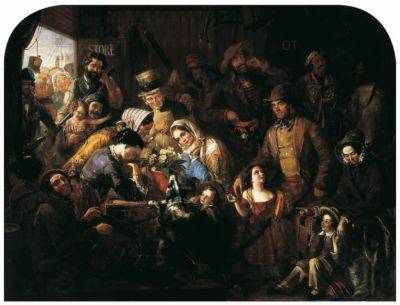
How the Wardian case revolutionised the plant trade – and Australian gardens
Header image: Melburnians admire the first primrose to arrive in the colony, transported by a Wardian case, in Edward Hopley’s A Primrose from England, circa 1855. [Bendigo Art Gallery, Gift of Mr and Mrs Leonard Lansell 1964]
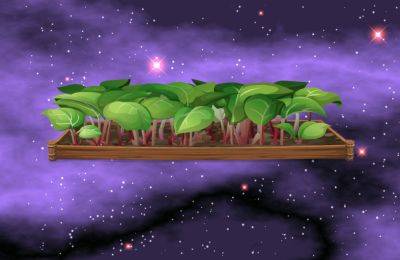
Microgreens in Space
During Lockdown I have done some sprouting – growing corn shoots, beansprouts, wheatgrass and pea shoots on the windowsill to use as salad and stir fry ingredients. We didn’t really rate the corn shoots and wheatgrass (and the leftover seeds are destined to go through the mill!), but the beansprouts and pea shoots are old favourites we sprout from time to time. The benefits of sprouts are that you get a large amount of nutrition from a small space, in a small amount of time.
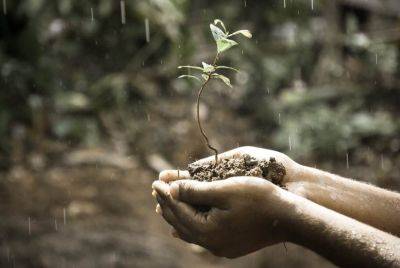
Here’s why soil smells so good after it rains
Klas Flärdh, Lund University and Paul Becher, Swedish University of Agricultural Sciences
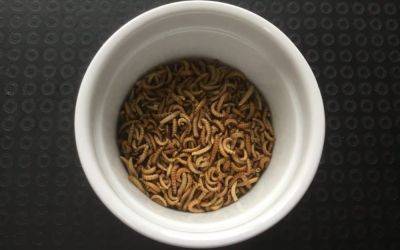
Insects could help increase Europe’s food self-sufficiency but will they catch on?
As the world population grows, it will be a challenge to meet everyone’s nutritional needs with traditional sources of protein.
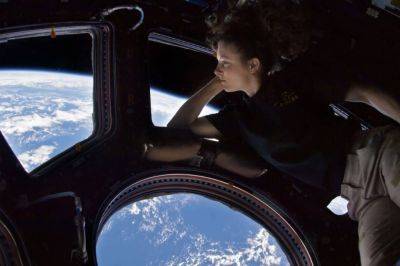
How to live in space: what we’ve learned from 20 years of the International Space Station
Header image: NASA / Tracy Caldwell Dyson
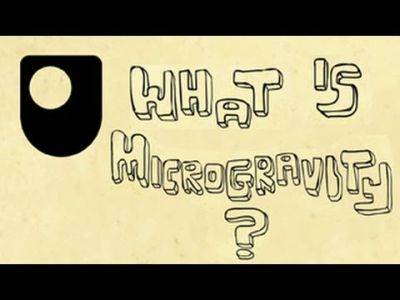
60 second adventures in Microgravity with David Mitchell – What is microgravity?
In my space blog posts and episodes of the Gardeners of the Galaxy podcast, I use the word microgravity a lot. But what is it, exactly? This video, produced by the UK Space Agency and the Open University explains what microgravity is and the value for scientists of creating a ‘weightless’ environment on Earth.
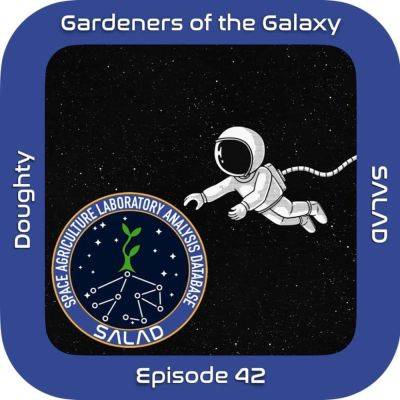
SALAD with Sam Humphrey and Luke Concollato (GotG42)
If you’ve ever carried out a research project, you know how hard it can be to find the relevant scientific papers. The SALAD (Space Agriculture Laboratory Analysis Database project aims to make astrobotany research widely accessible. By linking research papers according to their plants, spacecraft missions, and other details, SALAD compiles astrobotany research in one central location. In this episode, Emma the Space Gardener talks with Sam Humphrey and Luke Concollato about the SALAD project.
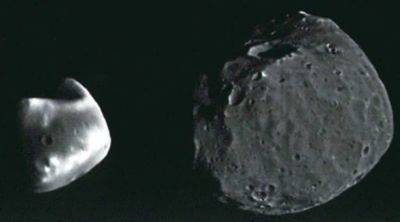
Could we grow plants on asteroids?
Header image: Mars’ asteroid-sized satellites Deimos and Phobos. Image credit: ESA
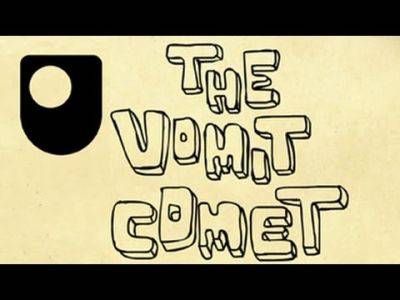
60 second adventures in Microgravity with David Mitchell – The Vomit Comet
In my space blog posts and episodes of the Gardeners of the Galaxy podcast, I sometimes mention experiments carried out during a parabolic flight, or on a zero-g plane (AKA Reduced-gravity aircraft) – often referred to as the “vomit comet”. This video, produced by the UK Space Agency and the Open University explains how scientists use microgravity environments to understand how planets form, by taking a queasy ride in a plane.
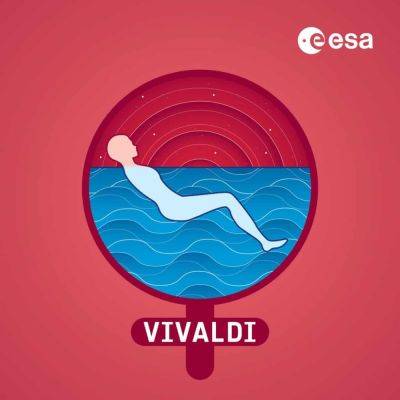
60 second adventures in Microgravity with David Mitchell – Bed rest
The physical effects of spending time in space are very similar to the natural ageing process. In fact, we can learn a lot about ageing by studying how microgravity affects astronauts. But that’s expensive, and it’s much cheaper for people to stay in bed!
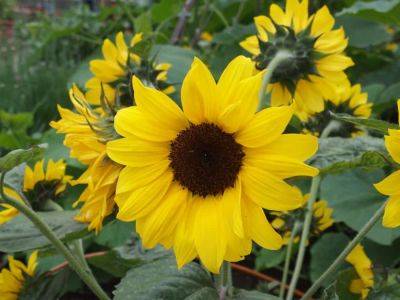
The daily dance of flowers tracking the sun is more fascinating than most of us realise
Gregory Moore, The University of Melbourne
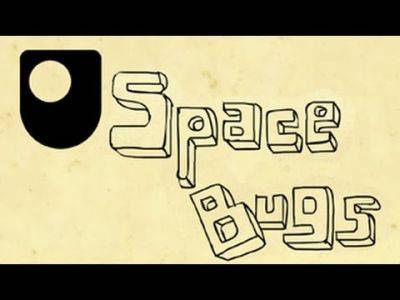
60 second adventures in Microgravity with David Mitchell – Space Bugs
A human being is less a single individual and more of a commune of organisms. Wherever we go, we take our microbiome with us – and that includes space. Astronauts spend some of their time keeping the International Space Station clean (housework follows you when you leave the planet!), and there have always been concerns that a microbe that’s harmless here on Earth may mutate into something nasty in a microgravity environment.
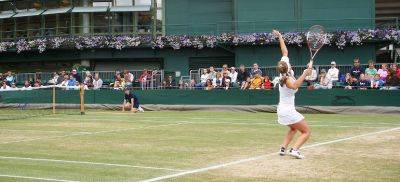
The Science behind the Green Grass Courts of Wimbledon
An inseparable part of British summer time, the Wimbledon Championship is on between 29.06 – 17.07. With more than 450,000 spectators attending each year, and 19 grass courts, it is a massive event, yet it still retains its Victorian atmosphere and image.
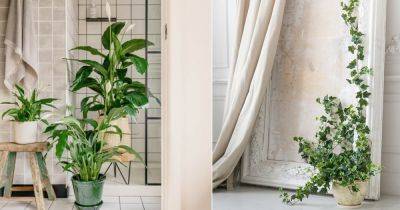
10 Houseplants for Healthy Lungs (Proven By Science)
In times of this pandemic, it is imperative that you take good care of your health, especially the respiratory system. Exposure to Volatile Organic Compounds (which are 10 times higher indoors than outdoors), Particulate Matter, Polluting Gases like Nitrogen Oxide andRadon, and Contaminants like Asbestos are commonly found inside homes.
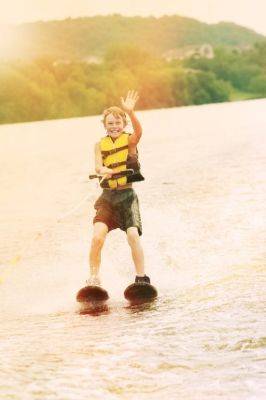
E. coli, Swimming Safety, Citizen Science, and YOU!
Any day now, temperatures should drop, and we will begin what I believe to be the best season in South Carolina – the Fall! This is not just a football-induced admiration. Fall is a great time to be outdoors and on the water. It’s also our best season to appreciate the culinary treasures of our estuaries – shrimp and oysters!
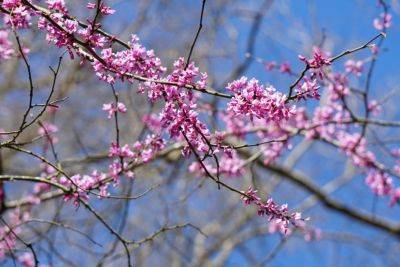
Citizen Science Opportunity: The Redbud Phenology Project
One of my favorite trees is the Eastern redbud (Cercis canadensis). I love how the flowers emerge before the foliage, adding a pop of color to the landscape in early spring. Plus, they provide nectar and pollen for pollinating insects active early in the growing season. As I have gotten older and wiser, I enjoy and notice the outside world around me more. If I could redo anything, it would be to learn this lesson earlier in life. Maybe you already find yourself taking note of the world around you? Or perhaps you wish you took more time to enjoy the little things, like an Eastern redbud in bloom. Either way, there is an exciting opportunity for you and/or your family to participate in a Citizen Science project.
- 1
- 2
Popular Topics
Our site greengrove.cc offers you to spend great time reading Science latest Tips & Guides. Enjoy scrolling Science Tips & Guides to learn more. Stay tuned following daily updates of Science hacks and apply them in your real life. Be sure, you won’t regret entering the site once, because here you will find a lot of useful Science stuff that will help you a lot in your daily life! Check it out yourself!
